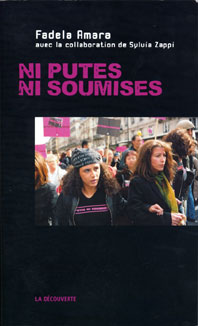Dark Lady
“Each time we come closer to Shakespeare’s life, we escape from the aridity of formal criticism or the cheap generalities of social history into a recognizable world of real experience. When A. L. Rowse insists that Emilia Bassano Lanier, the tempestuous, adulterous, musical, poetic wife of a court musician, was the original ‘Dark Lady’ of the Sonnets, we can buy it or not, as we please. But the very existence of a woman like Emilia demonstrates that the clichéd images of Elizabethan women, as subservient wives or unruly whores, are too grossly tuned to capture the reality of Shakespeare’s world. Whether she is the Dark Lady or not, Emilia is a dark lady. Good biographical criticism dissolves determinisms, and replaces them not with gossipy puzzle-solution certainties but with glimpses of life as it is lived, and art as it is made.”
— Adam Gopnik, The New Yorker, issue dated Sept. 13, 2004

“En librairie depuis le 12 septembre 2003, ce livre correspond au désir du mouvement ‘ni putes ni soumises’ de briser l’omerta et de poursuivre les débats engagés depuis la marche des femmes. À travers ce récit, ce sont les voix de milliers de jeunes femmes qui se font entendre, exprimant leurs interrogations et leur révolte.”
On Samira Bellil, who died on Sept. 3:
“Bellil was considered the ‘godmother’ of the womens’ rights group ‘Ni Putes Ni Soumises’ (Neither Whores Nor Submissive.)”
didn’t know much about bellil; however, very much enjoyed the article in the new yorker from which your dark lady reference was taken. in general, however, i found the comment on these stereotypes of women fascinating, if only because they figured quite heavily into some research i did on roman poetry two years ago. very interesting indeed…
Comment by Sempronia84 — Tuesday, September 14, 2004 @ 9:30 am